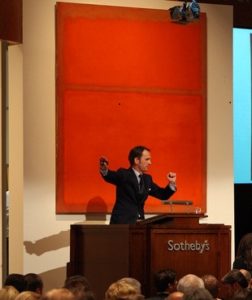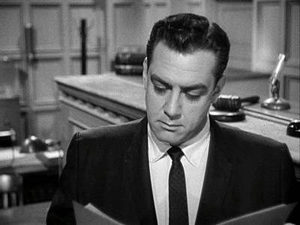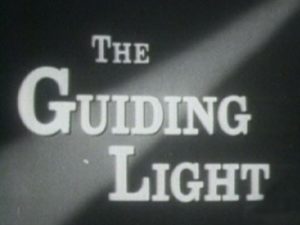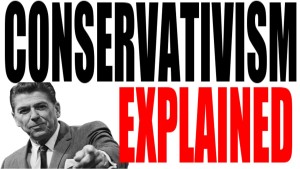 A group of optometrists won judgment against Wal-Mart for $1,395,400, consisting entirely of statutory penalties relating to Wal-Mart’s influence over their working hours. After withdrawing the initial panel opinion and then receiving answers to certified questions in Forte v. Wal-Mart Stores, Inc., No. 15-0146 (Tex. May 20, 2016), the Fifth Circuit again concluded that “the district court’s judgment regarding damages must be vacated; attorneys’ fees are the only matter that remains in the case.” Forte v. Wal-Mart Stores, Inc., No. 12-40854 (Oct. 27, 2016).
A group of optometrists won judgment against Wal-Mart for $1,395,400, consisting entirely of statutory penalties relating to Wal-Mart’s influence over their working hours. After withdrawing the initial panel opinion and then receiving answers to certified questions in Forte v. Wal-Mart Stores, Inc., No. 15-0146 (Tex. May 20, 2016), the Fifth Circuit again concluded that “the district court’s judgment regarding damages must be vacated; attorneys’ fees are the only matter that remains in the case.” Forte v. Wal-Mart Stores, Inc., No. 12-40854 (Oct. 27, 2016).
Celebrate Halloween with these Five Recent Cases to Know. And don’t forget to vote for Super Lawyers by this Friday, October 28!
 Bonnie Pereida’s estate successfully brought RICO claims against a dealer in rare coins, arguing that it systematically deceived Ms. Pereida about the quality of the coins she bought from it. The Fifth Circuit agreed with the estate that the RICO claim survived her, finding that “RICO’s remedial purpose predominates” over its penal purposes. But, it reversed as to the proof of a “pattern of racketeering activity,” finding that the relevant time period was too short and did not qualify as “open-ended.” It noted that on remand, the plaintiff could potentially still elect a remedy in common-law fraud where this problem would not arise.
Bonnie Pereida’s estate successfully brought RICO claims against a dealer in rare coins, arguing that it systematically deceived Ms. Pereida about the quality of the coins she bought from it. The Fifth Circuit agreed with the estate that the RICO claim survived her, finding that “RICO’s remedial purpose predominates” over its penal purposes. But, it reversed as to the proof of a “pattern of racketeering activity,” finding that the relevant time period was too short and did not qualify as “open-ended.” It noted that on remand, the plaintiff could potentially still elect a remedy in common-law fraud where this problem would not arise.
During that analysis, the Court offered a telling general comment: “[Plaintiff] contends that the Defendants waived this challenge to the ‘pattern’ element by raising it for the first time in their motion for a new trial. It should have been raised, he argues, in a motion for summary judgment so he would have known that this was a contested issue. The argument says a lot about modern civil litigation in which summary judgment, rather than trial, has become the focus. But when a case does go to trial, the burden is on the plaintiff to prove every element.” Malvino v. Dellniversita, No. 15-41435 (Oct. 20, 2016) (emphasis added).
 The preliminary injunction said: “Plaintiffs may contact former and current . . . employees . . . of the Debtor if and only if a written request is made by Plaintiffs’ counsel to counsel for SkyPort, and counsel for SkyPort either a) agrees to the proposed contact or b) does not respond within 1 business day,” and: “Plaintiffs are temporarily enjoined from: pursuing any and all claims or causes of action, derivative or direct, against all of the Defendants.”
The preliminary injunction said: “Plaintiffs may contact former and current . . . employees . . . of the Debtor if and only if a written request is made by Plaintiffs’ counsel to counsel for SkyPort, and counsel for SkyPort either a) agrees to the proposed contact or b) does not respond within 1 business day,” and: “Plaintiffs are temporarily enjoined from: pursuing any and all claims or causes of action, derivative or direct, against all of the Defendants.”
Nevertheless, the trial court found that Plaintiffs’ counsel and Plaintiffs’ financial advisor “continued to pursue evidence and witnesses―namely Cole [Skyport’s former president]. They encouraged Cole to pursue her own claims . . . in other courts by arranging for her counsel, providing for a “loan” for her counsel’s retainer, and pursuing financial support for the state court litigation.”
The Fifth Circuit affirmed a substantial award of sanctions, reflecting the attorneys fees incurred to rectify the situation. The Court rejected defenses based on whether (1) the award was civil or criminal in nature, (2) fees alone could be the basis of the sanction awarded, (3) the injunction no longer was in effect, (4) the alleged violations were inadvertent, and (5) the individuals sanctioned were not subject to the order. Goldman v. Bankton Fin. Corp., No. 15-2-243 (Oct. 12, 2016, unpublished).
 Apache Corporation had an insurance policy for computer fraud, which said: “We will pay for loss of, and loss from damage to, money, securities and other property resulting directly from the use of any computer to fraudulently cause a transfer of that property from inside the premises or banking premises: (a) to a person (other than a messenger) outside those premises; or (b) to a place outside those premises.” (emphasis added) The Fifth Circuit, after a “detailed — albeit numbing — analysis of the cited authorities,” concluded that the weight of the case law did not create coverage under this policy for the following events:
Apache Corporation had an insurance policy for computer fraud, which said: “We will pay for loss of, and loss from damage to, money, securities and other property resulting directly from the use of any computer to fraudulently cause a transfer of that property from inside the premises or banking premises: (a) to a person (other than a messenger) outside those premises; or (b) to a place outside those premises.” (emphasis added) The Fifth Circuit, after a “detailed — albeit numbing — analysis of the cited authorities,” concluded that the weight of the case law did not create coverage under this policy for the following events:
- Apache received a call from a vendor (actually, a criminal posing as the vendor) asking that Apache change its payments to a new bank account.
- Apache asked for a formal request on the vendor’s letterhead; one arrived about a week later by email with an attachment on letterhead (from a domain used by the criminals to further pose as the vendor);
- Apache called the number on the letterhead to verify the request, and after thinking it had confirmed the authenticity of the request, began sending payments to a new bank account.
While computer use obviously played a role in the deception, the Court noted: “To interpret the computer-fraud provision as reaching any fraudulent scheme in which an email communication was part of the process would . . . convert the computer-fraud provision to one for general fraud.” Apache Corp. v. Great Am. Ins. Co., No. 15-20499 (Oct. 18, 2016, unpublished).
 The parties in AIG Specialty Ins. Co. v. Tesoro Corp. disputed whether limitations had run on an insurance coverage claim involving the identity of the named insured (and in turn, whether that entity owned a refinery subject to difficult environmental remediation orders). As a matter of contract law, the Court agreed that mere receipt of an insurance policy does not necessarily bar a reformation claim. But under Texas limitations principles, the insured could not establish that the insurer had “specialized knowledge” about the subject of refinery ownership, or that the mistake in the policy was inherently undiscoverable — especially then “the mistake is evident from the face of the document.” No. 15-50953 (Oct. 17, 2016).
The parties in AIG Specialty Ins. Co. v. Tesoro Corp. disputed whether limitations had run on an insurance coverage claim involving the identity of the named insured (and in turn, whether that entity owned a refinery subject to difficult environmental remediation orders). As a matter of contract law, the Court agreed that mere receipt of an insurance policy does not necessarily bar a reformation claim. But under Texas limitations principles, the insured could not establish that the insurer had “specialized knowledge” about the subject of refinery ownership, or that the mistake in the policy was inherently undiscoverable — especially then “the mistake is evident from the face of the document.” No. 15-50953 (Oct. 17, 2016).
 The Romans sued Ford Motor Co. and a Houston AutoNation dealer. The dealer moved to compel arbitration; the district court denied the motion; and the dealer appealed. Unfortunately, the Fifth Circuit was “not satisfied, based on the record before it, that [the dealer] does not share citizenship with the Romans.” Reminding that the Federal Arbitration Act is not an independent basis for federal jurisdiction, the Court vacated the district court’s order and remanded for determination of subject matter jurisdiction — with instructions to dismiss if diversity was not established. Roman v. AutoNation Ford Gulf Freeway, No. 16-20047 (Oct. 13, 2016, unpublished).
The Romans sued Ford Motor Co. and a Houston AutoNation dealer. The dealer moved to compel arbitration; the district court denied the motion; and the dealer appealed. Unfortunately, the Fifth Circuit was “not satisfied, based on the record before it, that [the dealer] does not share citizenship with the Romans.” Reminding that the Federal Arbitration Act is not an independent basis for federal jurisdiction, the Court vacated the district court’s order and remanded for determination of subject matter jurisdiction — with instructions to dismiss if diversity was not established. Roman v. AutoNation Ford Gulf Freeway, No. 16-20047 (Oct. 13, 2016, unpublished).
 The plaintiff in Isner v. Seeger Weiss LLP alleged that counsel misrepresented the compensation that she would receive under a large Vioxx settlement. The defendants won; two features of the master settlement agreement were particularly important. First, it said that claimants would receive a payment under “criteria to be determined by the Claim Administrator” and “according to guidelines to be established by the Claims
The plaintiff in Isner v. Seeger Weiss LLP alleged that counsel misrepresented the compensation that she would receive under a large Vioxx settlement. The defendants won; two features of the master settlement agreement were particularly important. First, it said that claimants would receive a payment under “criteria to be determined by the Claim Administrator” and “according to guidelines to be established by the Claims
Administrator” — thus, “the method of calculation was . . . specifically reserved for
the decision of the Claims Administrator at a later date.” Second, under the heading “NO GUARANTEE OF PAYMENT,” the release said: “I FURTHER ACKNOWLEDGE THAT I UNDERSTAND THIS RELEASE AND THE AGREEMENT AND THAT THERE IS NO GUARANTEE THAT I WILL RECEIVE ANY SETTLEMENT PAYMENT OR, IF ANY SETTLEMENT PAYMENT IS MADE, THE AMOUNT THEREOF.” No. 15-31070 (Oct. 11, 2016, unpublished).
 Interlocutory appeal of discovery issues is largely foreclosed under the restrictive view of the “collateral order” doctrine adopted by Mohawk Industries v. Carpenter, 130 S. Ct. 599 (2009). Another, rarely-traveled path appears in Cazorla v. Koch Foods of Miss., in which the district court and Fifth Circuit agreed that an interlocutory appeal under 28 U.S.C. § 1292(b) of a difficult discovery issue
Interlocutory appeal of discovery issues is largely foreclosed under the restrictive view of the “collateral order” doctrine adopted by Mohawk Industries v. Carpenter, 130 S. Ct. 599 (2009). Another, rarely-traveled path appears in Cazorla v. Koch Foods of Miss., in which the district court and Fifth Circuit agreed that an interlocutory appeal under 28 U.S.C. § 1292(b) of a difficult discovery issue  involving parallel private employment litigation and immigration proceedings. The specific issue address is important but narrow; the procedural holding is notable for how unusual and important a discovery issue must be to come within the ambit of the interlocutory appeal statute. No. 15-60562 (Sept. 27, 2016).
involving parallel private employment litigation and immigration proceedings. The specific issue address is important but narrow; the procedural holding is notable for how unusual and important a discovery issue must be to come within the ambit of the interlocutory appeal statute. No. 15-60562 (Sept. 27, 2016).
 In April 2014, Burger King Europe sued on a guaranty to recover allegedly unpaid franchise fees (the “Personal Guarantee Litigation”). In September 2014, that guarantor and the franchise owners sued Burger King Europe for tortious interference and a declaratory judgment (the “Franchise Agreement Litigation”). Burger King asserted the defense of forum non conveniens, in favor of Germany, as specified in the parties’ agreement. Acknowledging some confusion about the applicable legal standard for waiver, the Fifth Circuit agreed with the district court that the filing of the Personal Guarantee Litigation did not waive Burger King’s ability to assert forum non conveniens in the later case against it. That said, the Court found an abuse of discretion in denying the plaintiffs’ leave to amend to add new defendants and new tort claims, noting that the motion was timely and not obviously moot. SGIC Strategic Global Investment Capital, Inc. v. Burger King Europe GMBH, No. 15-10943 (Oct. 10, 2016).
In April 2014, Burger King Europe sued on a guaranty to recover allegedly unpaid franchise fees (the “Personal Guarantee Litigation”). In September 2014, that guarantor and the franchise owners sued Burger King Europe for tortious interference and a declaratory judgment (the “Franchise Agreement Litigation”). Burger King asserted the defense of forum non conveniens, in favor of Germany, as specified in the parties’ agreement. Acknowledging some confusion about the applicable legal standard for waiver, the Fifth Circuit agreed with the district court that the filing of the Personal Guarantee Litigation did not waive Burger King’s ability to assert forum non conveniens in the later case against it. That said, the Court found an abuse of discretion in denying the plaintiffs’ leave to amend to add new defendants and new tort claims, noting that the motion was timely and not obviously moot. SGIC Strategic Global Investment Capital, Inc. v. Burger King Europe GMBH, No. 15-10943 (Oct. 10, 2016).
 In Monaco v. TAG Investments, the parties disputed the dischargeability of a $171,942.03 debt, based on the alleged misapplication of funds subject to Texas’s powerful Construction Trust Fund Act. The Fifth Circuit focused on a defense provided by that statute, which applies when “the trust funds not paid to the beneficiaries of the trust were used by the trustee to pay the trustee’s actual expenses directly related to the construction or repair of the improvement.” The Court accepted the explanation that “$124,053 went to salaries and overhead and an additional $50,400.00 went to superivision of this project,” noting that “payment of these sums as reasonable was approved by TAG’s architect.” Accordingly, the defense applied and the debt was dischargeable. No. 15-51085 (Oct. 6, 2016).
In Monaco v. TAG Investments, the parties disputed the dischargeability of a $171,942.03 debt, based on the alleged misapplication of funds subject to Texas’s powerful Construction Trust Fund Act. The Fifth Circuit focused on a defense provided by that statute, which applies when “the trust funds not paid to the beneficiaries of the trust were used by the trustee to pay the trustee’s actual expenses directly related to the construction or repair of the improvement.” The Court accepted the explanation that “$124,053 went to salaries and overhead and an additional $50,400.00 went to superivision of this project,” noting that “payment of these sums as reasonable was approved by TAG’s architect.” Accordingly, the defense applied and the debt was dischargeable. No. 15-51085 (Oct. 6, 2016).
 The plaintiffs in Sims v. Kia Motors brought products liability claims about the design of a fuel tank. Their main engineering expert “employed a ‘differential diagnosis approach, a scientific technique that essentially involves the process of elimination.” While a potentially reliable technique, the Fifth Circuit noted that it “has cautioned that “the results of a differential diagnosis are far from reliable per se..’ . . . “[M]erely “ruling out” other possible explanations is not enough to establish reliability; experts must also have some scientific basis for ‘ruling in’ the phenomenon they allege.” Here, where “the record does not reflect any reliable facts or data ‘ruling in'” the expert’s theory about how the fuel tank behaved in the accident, “the district court did not abuse its discretion in excluding it.” No. 15-10636 (revised Oct. 11, 2016).
The plaintiffs in Sims v. Kia Motors brought products liability claims about the design of a fuel tank. Their main engineering expert “employed a ‘differential diagnosis approach, a scientific technique that essentially involves the process of elimination.” While a potentially reliable technique, the Fifth Circuit noted that it “has cautioned that “the results of a differential diagnosis are far from reliable per se..’ . . . “[M]erely “ruling out” other possible explanations is not enough to establish reliability; experts must also have some scientific basis for ‘ruling in’ the phenomenon they allege.” Here, where “the record does not reflect any reliable facts or data ‘ruling in'” the expert’s theory about how the fuel tank behaved in the accident, “the district court did not abuse its discretion in excluding it.” No. 15-10636 (revised Oct. 11, 2016).
 Hoffman v. L&M Arts arose from the sale of a 1961 Rothko painting (right) by Sotheby’s in 2010; a previous owner alleged that this sale revealed facts about her own sale, in violation of a confidentiality provision in the sales contract that said: “All parties agree to make maximum efforts to keep all aspects of this transaction confidential indefinitely.” The Fifth Circuit ruled for the defense in all respects, concluding that:
Hoffman v. L&M Arts arose from the sale of a 1961 Rothko painting (right) by Sotheby’s in 2010; a previous owner alleged that this sale revealed facts about her own sale, in violation of a confidentiality provision in the sales contract that said: “All parties agree to make maximum efforts to keep all aspects of this transaction confidential indefinitely.” The Fifth Circuit ruled for the defense in all respects, concluding that:
- The original owner did not state a fraud claim against the relevant gallery, based on its alleged misrepresentation of its authority to act on behalf of an unnamed buyer, or its alleged misrepresentation about representing an entity or individual. (Notably, the owner did not argue in the district court that equitable relief could still be appropriate without proof of damage), or its claim that the piece would “disappear” into its client’s private collection.
- The contract did not require secrecy about the fact of the sale, based on the plain meaning of the term “aspect,” other provisions in the agreement, and the Texas policy against restraints on alienability.
- The questions about damages associated with the alleged breach either reflected speculative bargains, incorrect damages measures, or a disgorgement theory that is not well-supported as a Texas contract remedy.
No. 15-10046 (Sept. 28, 2016).
 In Torres v. S.G.E. Management LLC, the en banc Fifth Circuit reversed a panel opinion about a class action involving an alleged pyramid scheme. The case alleged RICO claims about the multi-level marketing program associated with Stream Energy; the panel rejected class certification, finding that individual causation issues would predominate at trial.
In Torres v. S.G.E. Management LLC, the en banc Fifth Circuit reversed a panel opinion about a class action involving an alleged pyramid scheme. The case alleged RICO claims about the multi-level marketing program associated with Stream Energy; the panel rejected class certification, finding that individual causation issues would predominate at trial.
The en banc court disagreed, reasoning: “The Defendants’ challenge to predominance rests on their belief that th[e] causation element will require individualized proof. But that premise . . . is at odds with recent decisions from the Supreme Court and this court emphasizing that RICO claims predicated on mail and wire fraud do not require first-party reliance to establish that the injuries were proximately caused by the fraud.” Accordingly, “[b]ecause pyramid schemes are per se mail fraud, which include inherent concealment about the deceptive payment scheme, one who participates in a pyramid scheme can be harmed ‘by reason of’ the fraud regardless of whether he or she relied on a misrepresentation about the scheme.” Additionally, the Court concluded that “if the Plaintiffs prove that Ignite is a fraudulent pyramid scheme, they may use a common inference of reliance to prove proximate causation under RICO.”
This is a significant ruling from a court that is generally considered hostile to class actions, in an area of the economy – multi-level marketing programs – that involves millions of participants. No. 14-20129 (Sept. 30, 2016) (en banc).
 The unfortuante Noreen Johnson sought to recover from her insurer after her home suffered wind damage from Hurricane Isaac, and then caught fire roughly two years later. The insurer successfully defended against her claim based on her failure to cooperate as required by the policy. In addition to showing her failure to provide required information, the insurer was able to establish prejudice, in that (1) “by significantly altering the state of the house before GeoVera’s agent could appraise it, Johnson effectively negated GeoVera’s appraisal right, as GeoVera could no longer inspect the extent of the smoke damage,” and (2) “by refusing to sit for an examination under oath until over a year after the fire . . . [t]he delay caused Johnson to forget information vital to protect GeoVera from fraud during the claims process.” Johnson v. GeoVera Specialty Ins. Co., No. 15-30803 (Sept. 27, 2016, unpublished).
The unfortuante Noreen Johnson sought to recover from her insurer after her home suffered wind damage from Hurricane Isaac, and then caught fire roughly two years later. The insurer successfully defended against her claim based on her failure to cooperate as required by the policy. In addition to showing her failure to provide required information, the insurer was able to establish prejudice, in that (1) “by significantly altering the state of the house before GeoVera’s agent could appraise it, Johnson effectively negated GeoVera’s appraisal right, as GeoVera could no longer inspect the extent of the smoke damage,” and (2) “by refusing to sit for an examination under oath until over a year after the fire . . . [t]he delay caused Johnson to forget information vital to protect GeoVera from fraud during the claims process.” Johnson v. GeoVera Specialty Ins. Co., No. 15-30803 (Sept. 27, 2016, unpublished).
 ERISA litigation about investment management presents a tension between the administrators’ fiduciary obligations, on the one hand, and discouraging needless litigation, on the other. After the Supreme Court’s most recent guidance about an ERISA fiduciary’s “duty of prudence” in Amgen Inc. v. Harris, 136 S. Ct. 758 (2016), the Fifth Circuit found that the plaintiffs in Whitley v. BP. PLC failed to meet their pleading burden: “The amended complaint states that BP’s stock was overvalued prior to the Deepwater Horizon explosion due to “numerous undisclosed safety breaches” known only to insiders. In other words, the stockholders theorize that BP stock was overpriced because BP had a greater risk exposure to potential accidents than was known to the market. Based on this fact alone, it does not seem reasonable to say that a prudent fiduciary at that time could not have concluded that (1) disclosure of such information to the public or (2) freezing trades of BP stock—both of which would likely lower the stock price—would do more harm than good. In fact, it seems that a prudent fiduciary could very easily conclude that such actions would do more harm than good.” No. 15-20282 (Sept. 26, 2016).
ERISA litigation about investment management presents a tension between the administrators’ fiduciary obligations, on the one hand, and discouraging needless litigation, on the other. After the Supreme Court’s most recent guidance about an ERISA fiduciary’s “duty of prudence” in Amgen Inc. v. Harris, 136 S. Ct. 758 (2016), the Fifth Circuit found that the plaintiffs in Whitley v. BP. PLC failed to meet their pleading burden: “The amended complaint states that BP’s stock was overvalued prior to the Deepwater Horizon explosion due to “numerous undisclosed safety breaches” known only to insiders. In other words, the stockholders theorize that BP stock was overpriced because BP had a greater risk exposure to potential accidents than was known to the market. Based on this fact alone, it does not seem reasonable to say that a prudent fiduciary at that time could not have concluded that (1) disclosure of such information to the public or (2) freezing trades of BP stock—both of which would likely lower the stock price—would do more harm than good. In fact, it seems that a prudent fiduciary could very easily conclude that such actions would do more harm than good.” No. 15-20282 (Sept. 26, 2016).
 The plaintiff in Cowart v. Erwin achieved the difficult result of winning a jury trial on an Eighth Amendment claim against a detention officer. The opinion details the proof that satisfied a sufficiency review — multiple favorable eyewitnesses (and multiple unfavorable ones as well) throughout the entire incident in question, along with helpful and contemporaneous photographs and medical records (among others). “Objective” video evidence was not dispositive when it “is not necessarily inconsistent with eye witness accounts of what transpired at the jail on the day in question.” No. 15-10404 (Sept. 20, 2016).
The plaintiff in Cowart v. Erwin achieved the difficult result of winning a jury trial on an Eighth Amendment claim against a detention officer. The opinion details the proof that satisfied a sufficiency review — multiple favorable eyewitnesses (and multiple unfavorable ones as well) throughout the entire incident in question, along with helpful and contemporaneous photographs and medical records (among others). “Objective” video evidence was not dispositive when it “is not necessarily inconsistent with eye witness accounts of what transpired at the jail on the day in question.” No. 15-10404 (Sept. 20, 2016).
 Graves v. Colvin provides an exceptionally clear illustration of harmless error:
Graves v. Colvin provides an exceptionally clear illustration of harmless error:
- Graves challenged the Social Security Administration’s determination that she was not disabled.
- A regulation governing ALJ hearings on such matters provides: “Occupational evidence provided by a VE or VS [vocational expert or vocational specialist] generally should be consistent with the occupational information supplied by the DOT [“Dictionary of Occupational Titles”] . . . At the hearings level, as part of the adjudicator’s duty to fully develop the record, the adjudicator will inquire, on the record, as to whether or not there is such consistency.”
- Graves lost, and argued in court that the ALJ failed to ask this required question.
- But — “‘Procedural perfection in administrative proceedings is not required’ as long as ‘the substantial rights of a party have not been affected.’ Graves does not even attempt to show that the vocational expert’s testimony was actually inconsistent with the DOT. Nor has she otherwise demonstrated prejudice. Hence, the ALJ’s procedural error was harmless and does not warrant reversal.”
No. 16-10340 (Sept. 21, 2016).
 Insurance coverage litigation provided another example of the tension between the “Scylla” of pleading — the “plead more detail” command from Twombly and Iqbal — and its “Charybids” — the principle of insurance law that “[a]ll doubts regarding the duty to defend are resolved in favor of the insured.” Fed Ins. Co. v. Northfield Ins. Co., No. 14-20633 (Sept. 16, 2016). Here, ltigation about pollution liability led to a dispute about whether a “pollution exclusion” eliminated the duty to defend. The Fifth Circuit reversed a summary judgment in favor of the insurer, noting: “ExxonMobil’s petition does not attach any of the petitions in the Louisiana Litigation. ExxonMobil’s petition provides very little information about the nature of the claims made in the Louisiana Litigation, for which ExxonMobil seeks indemnity and defense costs from [the insured].” As a result, “because of the breadth and generality of the allegations in ExxonMobil’s state court petition, we cannot say that all of the claims fall clearly within the exclusion.”
Insurance coverage litigation provided another example of the tension between the “Scylla” of pleading — the “plead more detail” command from Twombly and Iqbal — and its “Charybids” — the principle of insurance law that “[a]ll doubts regarding the duty to defend are resolved in favor of the insured.” Fed Ins. Co. v. Northfield Ins. Co., No. 14-20633 (Sept. 16, 2016). Here, ltigation about pollution liability led to a dispute about whether a “pollution exclusion” eliminated the duty to defend. The Fifth Circuit reversed a summary judgment in favor of the insurer, noting: “ExxonMobil’s petition does not attach any of the petitions in the Louisiana Litigation. ExxonMobil’s petition provides very little information about the nature of the claims made in the Louisiana Litigation, for which ExxonMobil seeks indemnity and defense costs from [the insured].” As a result, “because of the breadth and generality of the allegations in ExxonMobil’s state court petition, we cannot say that all of the claims fall clearly within the exclusion.”
 What better way to celebrate 600Camp.com’s fifth birthday than with Emeril’s muffaletta recipe? Thanks to all blog readers for years of support and encouragement.
What better way to celebrate 600Camp.com’s fifth birthday than with Emeril’s muffaletta recipe? Thanks to all blog readers for years of support and encouragement.
 The plaintiff in GlobeRanger Corp. v. Software AG won a $15 million judgment for misappropriation of trade secrets. The Fifth Circuit affirmed, holding:
The plaintiff in GlobeRanger Corp. v. Software AG won a $15 million judgment for misappropriation of trade secrets. The Fifth Circuit affirmed, holding:
- After a thorough review of Circuit precedent – not all entirely consistent – “that GlobeRanger’s trade secret misappropriation claim requires establishing an additional element than what is required to make out a copyright violation: that the protected information was taken via improper means or breach of a confidential relationship. Because the state tort provides substantially different protection than copyright law, it is not preempted.”
- Recognizing the “jurisdictional Catch-22” created by that ruling, and referring back to an earlier panel opinion from the time of the case’s removal: “As the complaint [then] alleged only conversion of intangible property for which there is equivalency between the rights protected under that state tort and federal copyright law, complete preemption converted the conversion claim into one brought under the Copyright Act that supported federal question jurisdiction at the time of removal and supplemental jurisdiction after it was dismissed.”
- Found that GlobeRanger had offered sufficient evidence of: (1) what specifically constituted its claimed trade secrets; (2) whether Software AG acquired trade secrets improperly or with notice of impropriety, particularly in light of federal contracting regulations; and (3) whether Software AG “used” any trade secret.
The opinion concluded with an unfortunately apt observation about the business litigation that is the focus of this blog: “This case demonstrates the unfortunate complexity of much of modern civil litigation. A trial involving a single cause of action—misappropriation of trade secrets (plus a derivate conspiracy claim)—has resulted in an appeal raising numerous issues that span the lifecycle of the lawsuit: jurisdiction; preemption; federal contracting regulations; expert testimony on damages; and jury instructions.
 In response to a summary judgment motion in a suit for unpaid overtime, plaintiff Garcia offered affidavit testimony that he “was told” certain favorable salary information. The record was unclear as to who told him that information. On appeal from an adverse ruling, the Court noted: “Garcia first argues that the district court erred by discounting, as hearsay, Garcia’s statement in his affidavit about what he was ‘told,’ because ‘taking the evidence in the light most favorable to Garcia, a party-opponent told Garcia this information.’ However, courts are not required to view evidence presented at summary judgment in the light most favorable to the nonmoving party on the question of admissibility; rather, ‘the content of summary judgment evidence must be generally admissible,’ and ‘[i]t is black-letter law that hearsay evidence cannot be considered on summary judgment’ for the truth of the matter asserted.” Garcia v. U Pull It Auto Truck Salvage, Inc., No. 16-20257 (Sept. 15, 2016, unpublished).
In response to a summary judgment motion in a suit for unpaid overtime, plaintiff Garcia offered affidavit testimony that he “was told” certain favorable salary information. The record was unclear as to who told him that information. On appeal from an adverse ruling, the Court noted: “Garcia first argues that the district court erred by discounting, as hearsay, Garcia’s statement in his affidavit about what he was ‘told,’ because ‘taking the evidence in the light most favorable to Garcia, a party-opponent told Garcia this information.’ However, courts are not required to view evidence presented at summary judgment in the light most favorable to the nonmoving party on the question of admissibility; rather, ‘the content of summary judgment evidence must be generally admissible,’ and ‘[i]t is black-letter law that hearsay evidence cannot be considered on summary judgment’ for the truth of the matter asserted.” Garcia v. U Pull It Auto Truck Salvage, Inc., No. 16-20257 (Sept. 15, 2016, unpublished).
 In Smith Group JJR, PLLC v. Forrest General Hospital, a dispute about an architect’s fee, the appellant argued that “the district court erred by considering extrinsic evidence bearing on the meaning of the term ‘actual contstruction cost’ in the parties’ agreement. This issue – the proper role of extrinsic evidence in determining the meaning of a contract, produces frequent litigation and frequent differences of opinion between district courts and the Fifth Circuit. Here, the
In Smith Group JJR, PLLC v. Forrest General Hospital, a dispute about an architect’s fee, the appellant argued that “the district court erred by considering extrinsic evidence bearing on the meaning of the term ‘actual contstruction cost’ in the parties’ agreement. This issue – the proper role of extrinsic evidence in determining the meaning of a contract, produces frequent litigation and frequent differences of opinion between district courts and the Fifth Circuit. Here, the  court found a waiver of these arguments before the trial court, reminding that “citing cases that may contain a useful argument is simply inadequate to preserve that argument for appeal; ‘to be preserved, an argument must be pressed, and not merely intimated.'” No. 16-60134 (Sept. 9, 2016, unpublished). (This post was picked as one of the top five of the week by the Appellate Advocacy blog on the Law Professor Blogs Network!)
court found a waiver of these arguments before the trial court, reminding that “citing cases that may contain a useful argument is simply inadequate to preserve that argument for appeal; ‘to be preserved, an argument must be pressed, and not merely intimated.'” No. 16-60134 (Sept. 9, 2016, unpublished). (This post was picked as one of the top five of the week by the Appellate Advocacy blog on the Law Professor Blogs Network!)
Here is my PowerPoint from my “Fifth Circuit Update” presentation at the Advanced Civil Appellate Course in Austin. Note that it includes some initial notes on Globeranger-AG v. Software AG, a major intellectual property opinion released earlier this week.
 An Italian company sued the American subsidiary of the Venezuelan national oil company in Louisiana over a contract obligation. “Why did the Italian company file suit in a forum located many thousands of miles away from both where it is headquartered and where it performed the contracts? To try and take advantage of the single business enterprise theory under which Louisiana courts have allowed companies in certain circumstances to be held liable for the acts of their affiliates.” This manuever did not succeed, as the American subsidiary was incorprated in Delaware: “Applying Louisiana law to hold a Delaware corporation responsible for its foreign affiliate’s alleged breach of a contract in Venezuela would substantially undermine the high bar Delaware sets for disregarding corporate separateness. It would also be at odds with the expectations of the parties. Given the provision in its contract providing that Venezuelan law would govern any disputes, Energy Coal had no reasonable expectation that it could seek recourse under the laws of Louisiana.” Energy Coal SPA v. Citgo, No. 15-30863 (Sept. 1, 2016, unpublished).
An Italian company sued the American subsidiary of the Venezuelan national oil company in Louisiana over a contract obligation. “Why did the Italian company file suit in a forum located many thousands of miles away from both where it is headquartered and where it performed the contracts? To try and take advantage of the single business enterprise theory under which Louisiana courts have allowed companies in certain circumstances to be held liable for the acts of their affiliates.” This manuever did not succeed, as the American subsidiary was incorprated in Delaware: “Applying Louisiana law to hold a Delaware corporation responsible for its foreign affiliate’s alleged breach of a contract in Venezuela would substantially undermine the high bar Delaware sets for disregarding corporate separateness. It would also be at odds with the expectations of the parties. Given the provision in its contract providing that Venezuelan law would govern any disputes, Energy Coal had no reasonable expectation that it could seek recourse under the laws of Louisiana.” Energy Coal SPA v. Citgo, No. 15-30863 (Sept. 1, 2016, unpublished).
 In trademark and trade dress litigation be
In trademark and trade dress litigation be tween Diageo, the maker of Crown Royal (left) and Mexcor, who makes Texas Crown Club (right), Diageo stipulated that “Mexcor did not infringe its marks until Mexcor sold its very first Texas Crown Club bottle in a bag bearing the Texas Crown Club logo” during the fourth quarter of 2011. Despite this concession, the Fifth Circuit concluded that Mexcor was not entitled to judgment on related issues when it “failed to urge that these counterclaims be presented to the jury after the district court denied its motions for JMOL.” The Court went on to remand the permanent injunction against Mexcor for revisoin, noting that the injunctoin could not extend to a type of bag that Mexcor had established its legal entitledment to use, and observing as to the last, “catch-all” provision of the injunction: “We are hesitant to approve such open-ended language, particularly because in other contexts this court
tween Diageo, the maker of Crown Royal (left) and Mexcor, who makes Texas Crown Club (right), Diageo stipulated that “Mexcor did not infringe its marks until Mexcor sold its very first Texas Crown Club bottle in a bag bearing the Texas Crown Club logo” during the fourth quarter of 2011. Despite this concession, the Fifth Circuit concluded that Mexcor was not entitled to judgment on related issues when it “failed to urge that these counterclaims be presented to the jury after the district court denied its motions for JMOL.” The Court went on to remand the permanent injunction against Mexcor for revisoin, noting that the injunctoin could not extend to a type of bag that Mexcor had established its legal entitledment to use, and observing as to the last, “catch-all” provision of the injunction: “We are hesitant to approve such open-ended language, particularly because in other contexts this court  has held that such ‘obey the law’ injunction orders are not permitted.” Diageo North America, Inc. v. Mexcor, Inc., No 15-20630 (Sept. 2, 2016, unpublished). (The opinon also notes
has held that such ‘obey the law’ injunction orders are not permitted.” Diageo North America, Inc. v. Mexcor, Inc., No 15-20630 (Sept. 2, 2016, unpublished). (The opinon also notes  the distinction between “whisky” (distilled in Scotland) and “whiskey” (distilled in the U.S. or Ireland), although none of these countries are the source of the liquor in this case, which the parties spelled “whisky.”)
the distinction between “whisky” (distilled in Scotland) and “whiskey” (distilled in the U.S. or Ireland), although none of these countries are the source of the liquor in this case, which the parties spelled “whisky.”)
 A recurring theme in my CLE presentations about the Fifth Circuit is that the phrase “a conservative court” is largely meaningless. To be sure, a majority of Fifth Circuit judges were appointed by Republican presidents, and many judges on the court have “conservative” philosophies, but what that actually means in a specific case about separation of power between judge and jury, trial and appellate courts, branches of government, etc. can vary a great deal.
A recurring theme in my CLE presentations about the Fifth Circuit is that the phrase “a conservative court” is largely meaningless. To be sure, a majority of Fifth Circuit judges were appointed by Republican presidents, and many judges on the court have “conservative” philosophies, but what that actually means in a specific case about separation of power between judge and jury, trial and appellate courts, branches of government, etc. can vary a great deal.
Consider the recent 8-7 vote against en banc rehearing in Passmore v. Baylor Health, discussed in yesterday’s post, which involved a close Erie question about state law pre-suit requirements. In a slide I just prepared for the upcoming Advanced Civil Appellate course in Austin, you can see the nominees of Republican presidents in red and those of Democratic presidents in blue — the “for” vote was 5-2 and the “against” vote was 5-3. (The judges with stars by their names joined a dissent.) Perhaps that split just shows that this technical issue is not ideological, but I think it also shows that there is far more to judicial philosophy than the simple label of “conservative.”
 The Fifth Circuit recently denied en banc review — by a “photo finish” 8-7 vote — of Passmore v. Baylor Health System, which concluded that Texas’s expert report requirements for medical malpractice cases were procedural and did not apply in federal court under the Erie doctrine. A dissent argued that this vote was inconsistent with the recent en banc opinion in Flagg v. Stryker Corp. that analyzed a comparable requirement of Louisiana law.
The Fifth Circuit recently denied en banc review — by a “photo finish” 8-7 vote — of Passmore v. Baylor Health System, which concluded that Texas’s expert report requirements for medical malpractice cases were procedural and did not apply in federal court under the Erie doctrine. A dissent argued that this vote was inconsistent with the recent en banc opinion in Flagg v. Stryker Corp. that analyzed a comparable requirement of Louisiana law.
 Jefferson v. Certain Underwriters at Lloyds visited the intricate rules surrounding appellate review of remand orders. Here: “Dismissals of non-diverse parties allow for the exercise of diversity jurisdiction, and the propriety of remand in a properly removed case is judged on the basis of the district court’s jurisdiction over the claims remaining at the time of remand, not the time of removal.” Accordingly, “the district court had no discretion to remand this case if the remaining parties were diverse at the time of removal.” No. 15-30211 (Aug. 15, 2016, unpublished).
Jefferson v. Certain Underwriters at Lloyds visited the intricate rules surrounding appellate review of remand orders. Here: “Dismissals of non-diverse parties allow for the exercise of diversity jurisdiction, and the propriety of remand in a properly removed case is judged on the basis of the district court’s jurisdiction over the claims remaining at the time of remand, not the time of removal.” Accordingly, “the district court had no discretion to remand this case if the remaining parties were diverse at the time of removal.” No. 15-30211 (Aug. 15, 2016, unpublished).
 Jones, the sole shareholder of a bankrupt business, moved to intervene in a lawsuit between the trustee for the business and Bank of America — two weeks after the parties had filed a stipulation of dismissal that the district court accepted. The district court denied Jones’s motion; he appealed, and the Fifth Circuit affirmed. As to the stipulation of dismissal, the appeal was untimely; as to the intervention, while Jones’s late arrival did not bar his motion outright, it heavily influenced the relevant factors against him. Sommers v. Bank of America, No. 15-20775 (Aug. 26, 2016).
Jones, the sole shareholder of a bankrupt business, moved to intervene in a lawsuit between the trustee for the business and Bank of America — two weeks after the parties had filed a stipulation of dismissal that the district court accepted. The district court denied Jones’s motion; he appealed, and the Fifth Circuit affirmed. As to the stipulation of dismissal, the appeal was untimely; as to the intervention, while Jones’s late arrival did not bar his motion outright, it heavily influenced the relevant factors against him. Sommers v. Bank of America, No. 15-20775 (Aug. 26, 2016).
 Cotton v. Certain Underwriters at Lloyds, a dispute about payment for wind damage from Hurricane Isaac, presented an issue about who was entitled to sue. The Fifth Circuit reminded that “‘Standing’ . . . is a label used to describe different things in the law.” One use is “whether a party has a right to sue under a contr
Cotton v. Certain Underwriters at Lloyds, a dispute about payment for wind damage from Hurricane Isaac, presented an issue about who was entitled to sue. The Fifth Circuit reminded that “‘Standing’ . . . is a label used to describe different things in the law.” One use is “whether a party has a right to sue under a contr act.” That use, which presents “an issue of ‘contract interpretation,'” is “entirely distinct from ‘standing’ for purposes of Article III” and its jurisdictional consequences. No. 15-31005 (Aug. 1, 2016).
act.” That use, which presents “an issue of ‘contract interpretation,'” is “entirely distinct from ‘standing’ for purposes of Article III” and its jurisdictional consequences. No. 15-31005 (Aug. 1, 2016).
 Continuing a theme in cases involving attorney liability (most notably the recent Stanford-related opinion in Troice v. Proskauer Rose, 816 F.3d 341 (5th Cir. 2015)), the Fifth Circuit affirmed summary judgment for the law firm involved in a disputed foreclosure: “Under Texas law, the doctrine of qualified immunity has ‘long authorized attorneys to practice their profession, to advise their clients and interpose any defense or supposed defense, without making themselves liable for damages.” Lassberg v. Bank of America, No. 15-40196 (Aug. 23, 2016, unpublished).
Continuing a theme in cases involving attorney liability (most notably the recent Stanford-related opinion in Troice v. Proskauer Rose, 816 F.3d 341 (5th Cir. 2015)), the Fifth Circuit affirmed summary judgment for the law firm involved in a disputed foreclosure: “Under Texas law, the doctrine of qualified immunity has ‘long authorized attorneys to practice their profession, to advise their clients and interpose any defense or supposed defense, without making themselves liable for damages.” Lassberg v. Bank of America, No. 15-40196 (Aug. 23, 2016, unpublished).
 For some time, the Golf Channel and the receiver for Allen Stanford’s affairs have disputed whether the Channel gave value in exchange for the purchase of roughly $6 million in advertising. The Channel contended that it did by giving exactly the advertising that Stanford ordered; the receiver disagreed, noting that Stanford was running a valueless Ponzi scheme. On certification from the Fifth Circuit, the Texas Supreme Court sided with the Channel, holding that under the Texas version of the Uniform Fraudulent Transfer Act, the Channel gave value from an objective perspective. The Fifth Circuit accepted that holding as to this case, but noted: “The Supreme Court of Texas’s answer interprets the concept of ‘value’ under TUFTA differently than we have understood ‘value’ under other states’ fraudulent transfer laws and under section 548(c) [of] the Bankruptcy Code.” Janvey v. Golf Channel, No. 13-11305 (Aug. 22, 2016).
For some time, the Golf Channel and the receiver for Allen Stanford’s affairs have disputed whether the Channel gave value in exchange for the purchase of roughly $6 million in advertising. The Channel contended that it did by giving exactly the advertising that Stanford ordered; the receiver disagreed, noting that Stanford was running a valueless Ponzi scheme. On certification from the Fifth Circuit, the Texas Supreme Court sided with the Channel, holding that under the Texas version of the Uniform Fraudulent Transfer Act, the Channel gave value from an objective perspective. The Fifth Circuit accepted that holding as to this case, but noted: “The Supreme Court of Texas’s answer interprets the concept of ‘value’ under TUFTA differently than we have understood ‘value’ under other states’ fraudulent transfer laws and under section 548(c) [of] the Bankruptcy Code.” Janvey v. Golf Channel, No. 13-11305 (Aug. 22, 2016).
 Whitlock, a truck driver, sued his employer for racial discrimination, alleging that the stated reason for discharge (running a red light at a loading dock) was pretextual. As to discriminatory discharge, “[t]he complaint fails to specify the [comparable] white employees’ work violations” and “fails to allege the white employees’ jobs” with the employer. As to hostile work environment, the complaint alleged that the workplace “was difficult [to] endure,” “caused stress related problems,” and that “[a] white employee was allowed to ride around in a pickup ruck without doing his job but given credit for the work done by African-American employees. The Fifth Circuit affirmed dismissal on the pleadings; this case illustrates a straightforward application of Rule 12 where the substantive law clearly dictates a certain level of detail about the claim. Whitlock v. Lazer Spot, Inc., No. 16-30139 (Aug. 15, 2016, unpublished).
Whitlock, a truck driver, sued his employer for racial discrimination, alleging that the stated reason for discharge (running a red light at a loading dock) was pretextual. As to discriminatory discharge, “[t]he complaint fails to specify the [comparable] white employees’ work violations” and “fails to allege the white employees’ jobs” with the employer. As to hostile work environment, the complaint alleged that the workplace “was difficult [to] endure,” “caused stress related problems,” and that “[a] white employee was allowed to ride around in a pickup ruck without doing his job but given credit for the work done by African-American employees. The Fifth Circuit affirmed dismissal on the pleadings; this case illustrates a straightforward application of Rule 12 where the substantive law clearly dictates a certain level of detail about the claim. Whitlock v. Lazer Spot, Inc., No. 16-30139 (Aug. 15, 2016, unpublished).
 In Wilson v. Navika Capital Group LLC, the appellants filed this notice of appeal from adverse rulings in an FLSA dispute. The Fifth Circuit found that the reference in the notice to “Plaintiffs Wilson et al.” did not satisfy the requirements of Fed. R. Civ. P. 3 in light of the entire record — a case in which “the plaintiffs .. were in ‘continual flux’ at the district court, as various groups of plaintiffs were dismissed at different times.” The notice was sufficient as to two plaintiffs specifically named in named in the style of the case as shown on the notice, as Rule 3 says — “The notice of appeal must: specify the party or parties taking the appeal by naming each one in the caption or body of the notice.” No. 15-20204 (Aug. 8, 2016, unpublished).
In Wilson v. Navika Capital Group LLC, the appellants filed this notice of appeal from adverse rulings in an FLSA dispute. The Fifth Circuit found that the reference in the notice to “Plaintiffs Wilson et al.” did not satisfy the requirements of Fed. R. Civ. P. 3 in light of the entire record — a case in which “the plaintiffs .. were in ‘continual flux’ at the district court, as various groups of plaintiffs were dismissed at different times.” The notice was sufficient as to two plaintiffs specifically named in named in the style of the case as shown on the notice, as Rule 3 says — “The notice of appeal must: specify the party or parties taking the appeal by naming each one in the caption or body of the notice.” No. 15-20204 (Aug. 8, 2016, unpublished).
 Icy litigation about the “sno-ball” market in New Orleans led to a series of sanctions motions, requiring the Fifth Circuit to evaluate the potential chilling effect of sanctions. (The opinion cites this informative article about the technical development of shaved-ice treats.) The Court held:
Icy litigation about the “sno-ball” market in New Orleans led to a series of sanctions motions, requiring the Fifth Circuit to evaluate the potential chilling effect of sanctions. (The opinion cites this informative article about the technical development of shaved-ice treats.) The Court held:
- “If SnoWizard made material misrepresentations about the validity of various trademarks and patents [in other litigation], Southern Snow should have introduced those claims during its litigation over the validity of those trademarks and patents during the trial”;
- Alleged “obstructive acts” during those proceedings “are not criminal conduct” and thus “cannot act as a predicate offense for a civil-RICO claim”;
- Dismissal without prejudice is not a sufficient predicate for a later malicious prosecution claim; and
- Conversely, the various sanctions and damages theories advanced were “no so obviously foreclosed by precedent as to make them legally indefensible.”
 The Court concluded: “”The parties could have shaved down the overwhelming costs in time, expense and scarce judicial resources that this litigation has consumed it they could have abandoned their unrelenting desire to crush the opposition.” Snow Ingredients, Inc. v. Snowizard, Inc., No. 15-30393 (Aug. 15, 2016). (The opinion echoes the similiarly frosty relations between the parties in the recent case of Yumilicious v. Barrie, involving a dispute about frozen yogurt franchises.)
The Court concluded: “”The parties could have shaved down the overwhelming costs in time, expense and scarce judicial resources that this litigation has consumed it they could have abandoned their unrelenting desire to crush the opposition.” Snow Ingredients, Inc. v. Snowizard, Inc., No. 15-30393 (Aug. 15, 2016). (The opinion echoes the similiarly frosty relations between the parties in the recent case of Yumilicious v. Barrie, involving a dispute about frozen yogurt franchises.)
 OTM, the owner of two boats, alleged a poor repair job by Diversified. The district court granted summary judgment for the defendant and the Fifth Circuit reversed, observing: “OTM concedes it has not attempted to prove the ‘precise cause’ of the engines’ malfunction; instead, it maintains it presented sufficient evidence to create the requisite
OTM, the owner of two boats, alleged a poor repair job by Diversified. The district court granted summary judgment for the defendant and the Fifth Circuit reversed, observing: “OTM concedes it has not attempted to prove the ‘precise cause’ of the engines’ malfunction; instead, it maintains it presented sufficient evidence to create the requisite
genuine dispute of material fact for whether the claimed substandard overhauls by Diversified caused the engines’ breakdown. . . . [A]t this stage, OTM is not required to prove exactly which part failed, or disprove that ‘the vessels’ other deteriorating parts or operator error’ was not the cause of the vessels’ breakdown . . . . ” Operaciones Tecnicas Marinas, SAS v. Diversified Marine Services, LLC, No. 15-30932 (Aug. 5, 2016, unpublished). The opinion illustrates the interaction between the requirements of Rule 56 and the requirement of Daubert case law that an expert adequately exclude alternative causes.
 Thomas v. Chevron USA involved a suit for damages after a pirate attack off the shore of Nigeria. The Fifth Circuit reversed the districr court’s denial of leave to amend; on the key issue of duty, the Court observed: “Thomas alleged that Chevron knew about of the real risk of piracy in the region and of the specific threats received by the [ship]. He alleged that despite its knowledge, Chevron requested that the [ship] take an unaccompanied support trip that would pass by the source of the recent threats. Finally, he alleged that Chevron broadcast his route information and locations over easily-accessible VHF radios, through which they could be heard by pirates known to be in the area. These allegations are sufficient to suggest that the harm suffered by Thomas was reasonably foreseeable to Chevron and that Chevron consequently owed him a duty not to subject him to the conditions he encountered . . . .” No. 15-20490 (Aug. 11, 2016).
Thomas v. Chevron USA involved a suit for damages after a pirate attack off the shore of Nigeria. The Fifth Circuit reversed the districr court’s denial of leave to amend; on the key issue of duty, the Court observed: “Thomas alleged that Chevron knew about of the real risk of piracy in the region and of the specific threats received by the [ship]. He alleged that despite its knowledge, Chevron requested that the [ship] take an unaccompanied support trip that would pass by the source of the recent threats. Finally, he alleged that Chevron broadcast his route information and locations over easily-accessible VHF radios, through which they could be heard by pirates known to be in the area. These allegations are sufficient to suggest that the harm suffered by Thomas was reasonably foreseeable to Chevron and that Chevron consequently owed him a duty not to subject him to the conditions he encountered . . . .” No. 15-20490 (Aug. 11, 2016).
 The losing party in an arbitration opposed confirmation on, among other grounds, a challenge to the disclosures made by JAMS. Specifically, the party complained that JAMS had not disclosed a relationship between the other side and another JAMS-affiliated arbitrator. This complaint did not meet the demanding standard for a disqualifying bias: “Here, the Arbitrator explicitly stated that he and Bates had never discussed this arbitration and that Bates did not know the Arbitrator was even at this hearing. In fact, there is no evidence that Bates had any relationship with the Arbitrator other than the fact that both serve as JAMS arbitrators. Most importantly, Cooper points to nothing in the record that would indicate that the Arbitrator had any prejudice against him.” Cooper v. WestEmd Capital Management LLC, No. 15-31068 (Aug. 9, 2016).
The losing party in an arbitration opposed confirmation on, among other grounds, a challenge to the disclosures made by JAMS. Specifically, the party complained that JAMS had not disclosed a relationship between the other side and another JAMS-affiliated arbitrator. This complaint did not meet the demanding standard for a disqualifying bias: “Here, the Arbitrator explicitly stated that he and Bates had never discussed this arbitration and that Bates did not know the Arbitrator was even at this hearing. In fact, there is no evidence that Bates had any relationship with the Arbitrator other than the fact that both serve as JAMS arbitrators. Most importantly, Cooper points to nothing in the record that would indicate that the Arbitrator had any prejudice against him.” Cooper v. WestEmd Capital Management LLC, No. 15-31068 (Aug. 9, 2016).
 In a case about the scope of a “drilling rig” exclusion in an insurance policy, a party asked the Fifth Circuit to not follow a previous unpublished opinion because it was not binding precedent. The Court disagreed, stating: “While [Appellant] is correct, we find Cash’s reasoning compelling,” and then applying the precedents cited by the opinion. Nonbinding precedent has persuasive power. Richard v. Dolphin Drilling Ltd., No. 16-30003 (Aug. 1, 2016).
In a case about the scope of a “drilling rig” exclusion in an insurance policy, a party asked the Fifth Circuit to not follow a previous unpublished opinion because it was not binding precedent. The Court disagreed, stating: “While [Appellant] is correct, we find Cash’s reasoning compelling,” and then applying the precedents cited by the opinion. Nonbinding precedent has persuasive power. Richard v. Dolphin Drilling Ltd., No. 16-30003 (Aug. 1, 2016).
 A former employee of a defense contractor sued for unpaid benefits; the forum selection clause said: “This Contract shall be governed by and interpreted exclusively under the laws of Kuwait and all disputes between the Parties shall be resolved exclusively in Kuwait.” Noting a potential threshold issue as to whether federal or Texas law governs the “validity” of a forum selection clause (while federal law clearly governs their “enforceability”), the Fifth Circuit found it enforceable under either standard. Kuwait – where the work was done – had a stronger interest in application of its laws than Texas, and the most relevant law was a statute of repose rather than limitation, which “operates as ‘a substantive definition of, rather than a procedural limitation on, rights.'” Barnett v. Dyncorp Int’l LLC, No. 15-10757 (July 26, 2016).
A former employee of a defense contractor sued for unpaid benefits; the forum selection clause said: “This Contract shall be governed by and interpreted exclusively under the laws of Kuwait and all disputes between the Parties shall be resolved exclusively in Kuwait.” Noting a potential threshold issue as to whether federal or Texas law governs the “validity” of a forum selection clause (while federal law clearly governs their “enforceability”), the Fifth Circuit found it enforceable under either standard. Kuwait – where the work was done – had a stronger interest in application of its laws than Texas, and the most relevant law was a statute of repose rather than limitation, which “operates as ‘a substantive definition of, rather than a procedural limitation on, rights.'” Barnett v. Dyncorp Int’l LLC, No. 15-10757 (July 26, 2016).
 American Construction, the general contractor on a hotel construction project, signed a “joint check” agreement, by which it would pay its subcontractor (Cratus Development) and its supplier (Shelter Products) jointly for building materials. American’s agreement also included this term: “If Cratus Development does not start or complete work on this project, and/or becomes past due with Shelter Products, Inc. to the extent that Shelter Products, Inc. can no
American Construction, the general contractor on a hotel construction project, signed a “joint check” agreement, by which it would pay its subcontractor (Cratus Development) and its supplier (Shelter Products) jointly for building materials. American’s agreement also included this term: “If Cratus Development does not start or complete work on this project, and/or becomes past due with Shelter Products, Inc. to the extent that Shelter Products, Inc. can no  longer extend credit to Cratus Development[,] American Construction will make payments directly to Shelter Products, Inc. for all outstanding and unpaid invoices for materials delivered to the jobsite . . . . ” The Fifth Circuit affirmed the district court’s conclusion that this language, in the overall context of the parties’ business dealings, created a suretyship by American. Shelter Products Inc. v. American Construction Hotel Corp., No. 16-30001 (July 27, 2016, unpublished).
longer extend credit to Cratus Development[,] American Construction will make payments directly to Shelter Products, Inc. for all outstanding and unpaid invoices for materials delivered to the jobsite . . . . ” The Fifth Circuit affirmed the district court’s conclusion that this language, in the overall context of the parties’ business dealings, created a suretyship by American. Shelter Products Inc. v. American Construction Hotel Corp., No. 16-30001 (July 27, 2016, unpublished).
 Tesoro, an oil refiner and marketer, submitted a claim to National Union under its commercial crime insurance policy, involving the forgery of key documents by a Tesoro employee about the account of Enmex, a substantial Tesoro customer. The Fifth Circuit reasoned that the “Employee Theft” provision of the policy required a showing of an unlawful taking, and that Tesoro failed to show had “the forged letters of credit and security agreement induced Tesoro to continue selling fuel to Enmex or what evidence supports this assertion . . . In sum, Tesoro failed to offer any evidence that it would have acted differently had it known the Enmex account was actually not secured.” Tesoro Refining v. National Union, No. 15-50405 (July 29, 2016).
Tesoro, an oil refiner and marketer, submitted a claim to National Union under its commercial crime insurance policy, involving the forgery of key documents by a Tesoro employee about the account of Enmex, a substantial Tesoro customer. The Fifth Circuit reasoned that the “Employee Theft” provision of the policy required a showing of an unlawful taking, and that Tesoro failed to show had “the forged letters of credit and security agreement induced Tesoro to continue selling fuel to Enmex or what evidence supports this assertion . . . In sum, Tesoro failed to offer any evidence that it would have acted differently had it known the Enmex account was actually not secured.” Tesoro Refining v. National Union, No. 15-50405 (July 29, 2016).
 Litigation about the failed drilling of an oil well led to insurance litigation under Louisiana’s Direct Action Statute. The district court granted summary judgment to the insured as to its insurers’ duty to indemnify, and the Fifth Circuit reversed, finding that the indemnity issue was not yet justiciable: “[I]t is readily apparent that ‘facts can be developed’ at trial that would support a finding that at least some of [the insured’s] conduct related to the failed directional drilling project triggered coverage under the relevant policies. Beyond the already existing testimony . . . [the insured] points to a number of witnesses who were not deposed but who could testify at trial on relevant issues such as subcontractors, surveyors, and consultants.” Solstice Oil & Gas LLC v. Seneca Ins. Co., No. 15-30874 (July 21, 2016).
Litigation about the failed drilling of an oil well led to insurance litigation under Louisiana’s Direct Action Statute. The district court granted summary judgment to the insured as to its insurers’ duty to indemnify, and the Fifth Circuit reversed, finding that the indemnity issue was not yet justiciable: “[I]t is readily apparent that ‘facts can be developed’ at trial that would support a finding that at least some of [the insured’s] conduct related to the failed directional drilling project triggered coverage under the relevant policies. Beyond the already existing testimony . . . [the insured] points to a number of witnesses who were not deposed but who could testify at trial on relevant issues such as subcontractors, surveyors, and consultants.” Solstice Oil & Gas LLC v. Seneca Ins. Co., No. 15-30874 (July 21, 2016).
 A detailed review of tax statutes and other authorities resulted in affirmance of a judgment against Bombardier related to the taxation of its “Flexjet” program; the Court summarized: “Because the law and its application to the real world is continually evolving, it is only natural that guidance in Revenue Rulings evolves too. We find a consistent theme, though, in the IRS’s guidance from the earliest Revenue Rulings grappling with this issue: where an entity is responsible for nearly every service and precondition necessary to transport persons in an aircraft, and it charges for those services, it is providing taxable transportation – even if the bona fide owner of the aircraft itself is the person traveling.” Bombardier Aerospace Corp. v. United States, No. 15-10468 (July 25, 2016).
A detailed review of tax statutes and other authorities resulted in affirmance of a judgment against Bombardier related to the taxation of its “Flexjet” program; the Court summarized: “Because the law and its application to the real world is continually evolving, it is only natural that guidance in Revenue Rulings evolves too. We find a consistent theme, though, in the IRS’s guidance from the earliest Revenue Rulings grappling with this issue: where an entity is responsible for nearly every service and precondition necessary to transport persons in an aircraft, and it charges for those services, it is providing taxable transportation – even if the bona fide owner of the aircraft itself is the person traveling.” Bombardier Aerospace Corp. v. United States, No. 15-10468 (July 25, 2016).
 The ECF records for the Western District of Texas showed that the appellant in Sudduth v. Texas Health & Human Services Commission filed her notice of appeal on August 31 — one day late. Following Franklin v. McHugh, 804 F.3d 627 (2d Cir. 2015), the Fifth Circuit found the ECF notices dispositive and dismissed for lack of jurisdiction. The Court observed that the Western District local rules and Fed. R. App. P. 4(a)(5) allow a party to seek relief from the district court in the event of technical problems with the ECF filing, which the appellant did not do here. Finally, “Sudduth argues that she was not made aware of any jurisdictional defect until this court requested briefing on this issue and that, at the very least, Franklin should not be retroactively applied to her case because it is new law. But, as previously discussed, the local rules and procedures here were sufficiently clear as to the requirements for timely filing, and the onus is on Sudduth, not the court, to be aware of and cure any deficiencies in the notice of appeal.” No. 15-50764 (July 18, 2016).
The ECF records for the Western District of Texas showed that the appellant in Sudduth v. Texas Health & Human Services Commission filed her notice of appeal on August 31 — one day late. Following Franklin v. McHugh, 804 F.3d 627 (2d Cir. 2015), the Fifth Circuit found the ECF notices dispositive and dismissed for lack of jurisdiction. The Court observed that the Western District local rules and Fed. R. App. P. 4(a)(5) allow a party to seek relief from the district court in the event of technical problems with the ECF filing, which the appellant did not do here. Finally, “Sudduth argues that she was not made aware of any jurisdictional defect until this court requested briefing on this issue and that, at the very least, Franklin should not be retroactively applied to her case because it is new law. But, as previously discussed, the local rules and procedures here were sufficiently clear as to the requirements for timely filing, and the onus is on Sudduth, not the court, to be aware of and cure any deficiencies in the notice of appeal.” No. 15-50764 (July 18, 2016).
 Extensive tornado damage to a building at the University of Southern Mississippi led to a hard-fought dispute among insurers. The Fifth Circuit’s detailed affirmance of the district court’s opinion turned on this observation about the losing insurer’s postition: “Were this construction adopted, insurers who covered the same risk would be incentivized to enter into a stare-down, each waiting for the other to blink first in order to seize the opportunity to deny coverage. Such an outcome is neither reasonable nor commercially practicable.” Southern Ins. Co. v. Affiliate
Extensive tornado damage to a building at the University of Southern Mississippi led to a hard-fought dispute among insurers. The Fifth Circuit’s detailed affirmance of the district court’s opinion turned on this observation about the losing insurer’s postition: “Were this construction adopted, insurers who covered the same risk would be incentivized to enter into a stare-down, each waiting for the other to blink first in order to seize the opportunity to deny coverage. Such an outcome is neither reasonable nor commercially practicable.” Southern Ins. Co. v. Affiliate d FM Ins. Co., No. 15060742 (July 21, 2016). (The opinion also features a rare appellate shout-out to T.S. Eliot’s The Hollow Men.)
d FM Ins. Co., No. 15060742 (July 21, 2016). (The opinion also features a rare appellate shout-out to T.S. Eliot’s The Hollow Men.)
 Nicholson worked for Securitas, a security staffing company. She sued about her reassignment from a position as a receptionist at a Securitas customer. The Fifth Circuit partially reversed a summary judgment for Securitas, noting: “If Securitas failed to follow its usual practices in responding to a client’s desire to have an employee removed, such a deviation can support Nicholson’s claim that the company should have known of the alleged discrimination.” Nicholson v. Securitas, No. 15-10582 (July 18, 2016).
Nicholson worked for Securitas, a security staffing company. She sued about her reassignment from a position as a receptionist at a Securitas customer. The Fifth Circuit partially reversed a summary judgment for Securitas, noting: “If Securitas failed to follow its usual practices in responding to a client’s desire to have an employee removed, such a deviation can support Nicholson’s claim that the company should have known of the alleged discrimination.” Nicholson v. Securitas, No. 15-10582 (July 18, 2016).
 In Kubala v. Supreme Production Services, the parties disputed whether an arbitration agreement reached an employment claim that arose before entry into the agreement. The district court found that it did not and denied the motion to compel arbitration. The Fifth Circuit reversed, finding this delegation clause “strikingly similar” to the one at issue in Rent-A-Center v. Jackson, 561 U.S. 63 (2010): “The arbitrator shall have the sole authority to rule on his/her own jurisdiction, including any challenges or objections with respect to the existence, applicability, scope, enforceability, construction, validity and
In Kubala v. Supreme Production Services, the parties disputed whether an arbitration agreement reached an employment claim that arose before entry into the agreement. The district court found that it did not and denied the motion to compel arbitration. The Fifth Circuit reversed, finding this delegation clause “strikingly similar” to the one at issue in Rent-A-Center v. Jackson, 561 U.S. 63 (2010): “The arbitrator shall have the sole authority to rule on his/her own jurisdiction, including any challenges or objections with respect to the existence, applicability, scope, enforceability, construction, validity and
interpretation of this Policy and any agreement to arbitrate a Covered Dispute.” The Court summarized: “The court appears to have thought that the question at the first step of the analysis is whether there is an agreement to arbitrate the claim currently before the court. But as we have explained, the only issue at the first step is whether there is any agreement to arbitrate any set of claims.” No. 15-41507 (July 20, 2016).
“ We now make explicit what we have held in unpublished, nonprecedential opinions. HUD regulations govern the relationship between the reverse-mortgage lender and HUD as insurer of the loan. HUD regulations do not give the borrower a private cause of action unless the regulations are expressly incorporated into the lender-borrower agreement.” Johnson v. World Alliance Financial, No. 15-50881 (July 18, 2016).
We now make explicit what we have held in unpublished, nonprecedential opinions. HUD regulations govern the relationship between the reverse-mortgage lender and HUD as insurer of the loan. HUD regulations do not give the borrower a private cause of action unless the regulations are expressly incorporated into the lender-borrower agreement.” Johnson v. World Alliance Financial, No. 15-50881 (July 18, 2016).